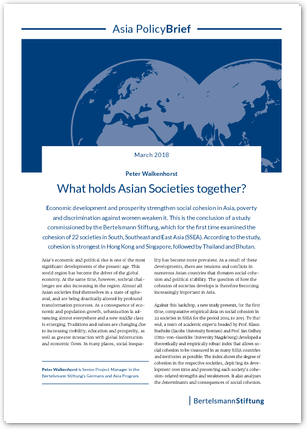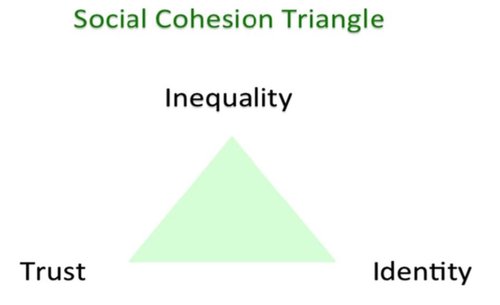What holds Asian Societies together?
Key facts
Identity/feeling of belonging
Participation
Equality/Inequality
Orientation towards the common good
Solidarity
Shared values
Tolerance
Connectedness
East Asia and Pacific
Economic development
Political institutions & governance
Inequality
Concept & measurement
Summary
Economic development and prosperity strengthen social cohesion in Asia, poverty and discrimination against women weaken it. This is the conclusion of a study commissioned by the Bertelsmann Stiftung, which for the first time examined the cohesion of 22 societies in South, Southeast and East Asia (SSEA). According to the study, cohesion is strongest in Hong Kong and Singapore, followed by Thailand and Bhutan.
In this issue of the Asia Policy Brief, Peter Walkenhorst, presents the key findings of the study and explains their significance for understanding social cohesion in Asia and non-Western societies in general. He shows that there is there is no silver bullet that leads to consistently strong social cohesion in SSEA. In principle, however, policy approaches promoting inclusive economic development, poverty alleviation and gender equality offer the greatest prospects of success.



